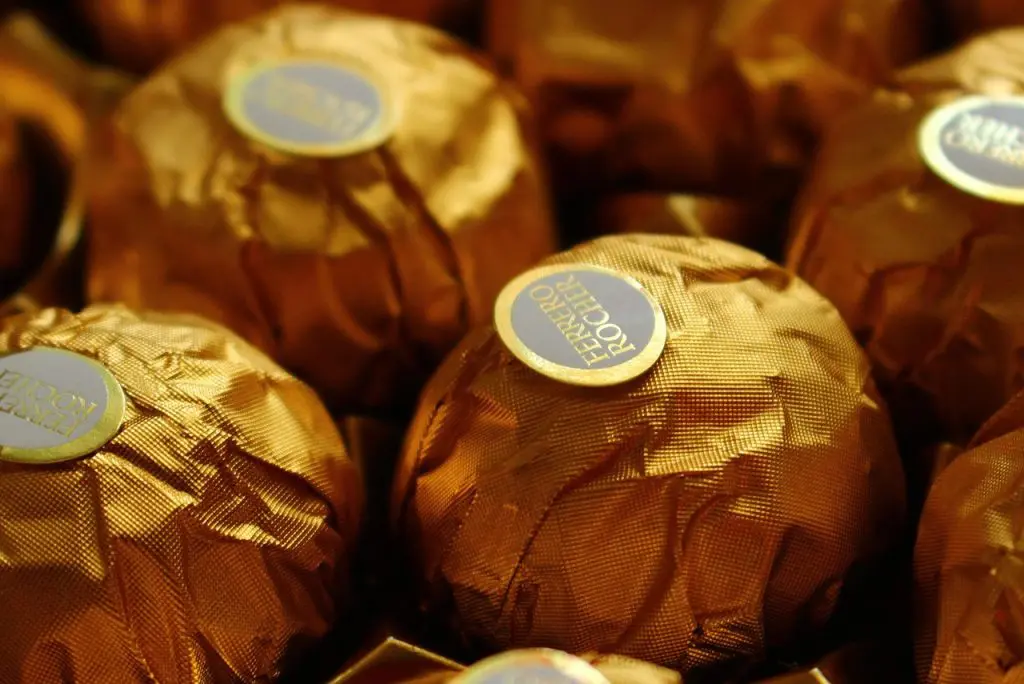
Ferrero Group Reports Major Sustainability Progress Since 2023/24 The Ferrero Group has published its 16th Sustainability Report, highlighting significant advancements in its ongoing commitment to responsible sourcing, environmental stewardship, and social impact. The report reflects the company’s long-term sustainability strategy and outlines key milestones achieved during the 2023/2024 fiscal year. A Core Commitment to Responsible […]
The Ferrero Group has published its 16th Sustainability Report, highlighting significant advancements in its ongoing commitment to responsible sourcing, environmental stewardship, and social impact. The report reflects the company’s long-term sustainability strategy and outlines key milestones achieved during the 2023/2024 fiscal year.
‘Sustainability is deeply embedded in Ferrero’s long-term strategy. It’s a fundamental driver of business resilience and shapes the decisions we make, as we grow responsibly,’ said Giovanni Ferrero, Executive Chairman of the Ferrero Group. He emphasized the importance of collaboration, innovation, and continued learning to drive measurable progress amid global challenges like climate change.
Lapo Civiletti, Ferrero’s CEO, noted, ‘We made steady progress on our sustainability agenda during fiscal year 2023/2024. I am particularly proud of the ongoing steps we are taking to achieve our long-term commitments. We have successfully advanced our sustainability journey while maintaining strong financial stewardship across the company. We are making great efforts on the traceability of our key ingredients and improving supply chain visibility, while advancing our commitments to promoting human rights and continuing our work on decarbonisation across the business.’
Ferrero has achieved substantial progress in traceability across its global supply chains. Over 90% of key ingredients are now mapped to their origin. The company reached:
97% traceability for both cocoa and palm oil
94% traceability for hazelnuts
These results were supported by strategic partnerships with Sourcemap and Starling, enhancing supply chain transparency and responsible sourcing practices.
Ferrero continues to pursue its goal of reducing greenhouse gas emissions by 50% by 2030, using a 2017/18 baseline. As of the latest report:
Scope 1 and 2 emissions were reduced by 21.7%
Scope 3 emissions were further detailed, with FLAG (Forest, Land, and Agriculture) and non-FLAG categories now disaggregated for improved carbon accounting
90% of electricity used in manufacturing and warehousing now comes from renewable sources
Ferrero reports that 92.1% of its packaging is now designed to be recyclable, maintaining its goal of ensuring more than 90% of packaging is reusable, recyclable, or compostable.
Key achievements include:
A 13% reduction in the plastic-to-product ratio
Ferrero Rocher box redesign (from polystyrene to polypropylene) in North America and China, saving approximately 11,000 tonnes of plastic
Launch of Nutella Plant-Based in jars made with 60% recycled glass
Rollout of Kinder Joy’s paper spoon, reducing single-use plastic
100% of Ferrero plants are now certified against GFSI (Global Food Safety Initiative) standards
Serving sizes remain a focus:
85% of marketed volumes offer 130 kcal or less per serving
63% are 100 kcal or less
91% are under 150 kcal
Ferrero continued its long-standing partnerships with organizations such as the International Labour Organization (ILO) and Save the Children to support human rights and community development in sourcing countries.
Additional initiatives included:
The Kinder Joy of Moving program, which reached 3.7 million children in 35 countries, supported by over €13 million in investments
A new 2024 partnership with the Organization of American States (OAS) to promote inclusion, equity, and access to rights through sports and physical activity, with a focus on children, adolescents, and women in the Americas
Ferrero continues to build on its sustainability framework through collective action, research, and innovation. With measurable progress across emissions, traceability, packaging, and community engagement, the company remains on track toward its 2030 goals and demonstrates that long-term business growth can align with meaningful environmental and social impact.
Ferrero Group’s advancements in sustainability offer a valuable blueprint for Irish businesses and policymakers striving to meet national climate and environmental goals. Its achievements in supply chain traceability (mapping over 90% of key ingredients to their source) can encourage Ireland’s food and agriculture sectors to adopt similar transparency practices. As consumer demand grows for ethically sourced products, Ferrero’s example underscores the importance of responsible sourcing in building resilient, future-ready supply chains.
Ireland’s commitment to reducing plastic waste and promoting a circular economy aligns closely with Ferrero’s packaging innovations. The company’s shift to recyclable materials, such as 60% recycled glass in Nutella Plant-Based jars and plastic reduction in Ferrero Rocher packaging, can serve as a model for Irish manufacturers seeking sustainable alternatives. These efforts support Ireland’s Waste Action Plan and broader EU environmental targets, demonstrating how global brands can lead on packaging reform.
Beyond environmental impact, Ferrero’s community initiatives, such as Kinder Joy of Moving and its new partnership with the Organization of American States, highlight how private companies can promote inclusion, health, and youth development. With similar social challenges in Ireland, Ferrero’s approach to community investment could inspire local collaborations between business, government, and civil society, fostering programs that support children’s well-being through sport, education, and empowerment.
At All-Ireland Sustainability, we’re committed to building a greener, fairer island—together. Stay informed on the latest environmental initiatives, community action, and policy developments shaping sustainability across Ireland, North and South.
👉 Sign up for our newsletter today and be the first to hear about upcoming events, expert insights, and ways to get involved.
Whether you’re a seasoned advocate or just starting your journey, new members are always welcome—your voice matters.
Subscribe now and be part of the All-Ireland Sustainability network.